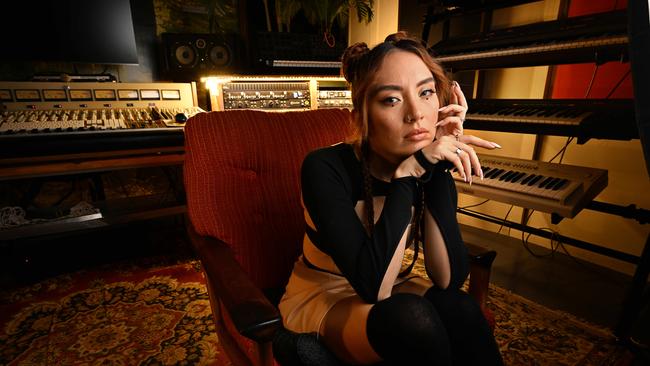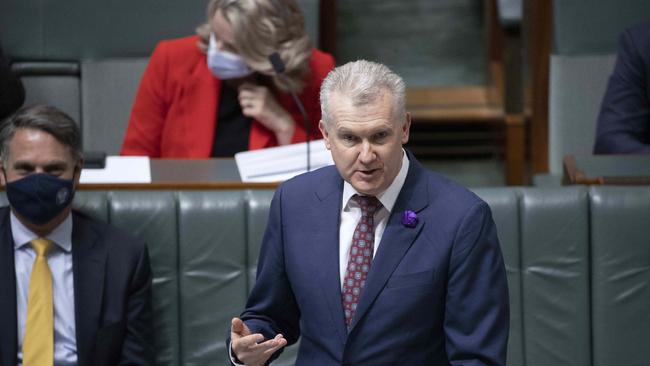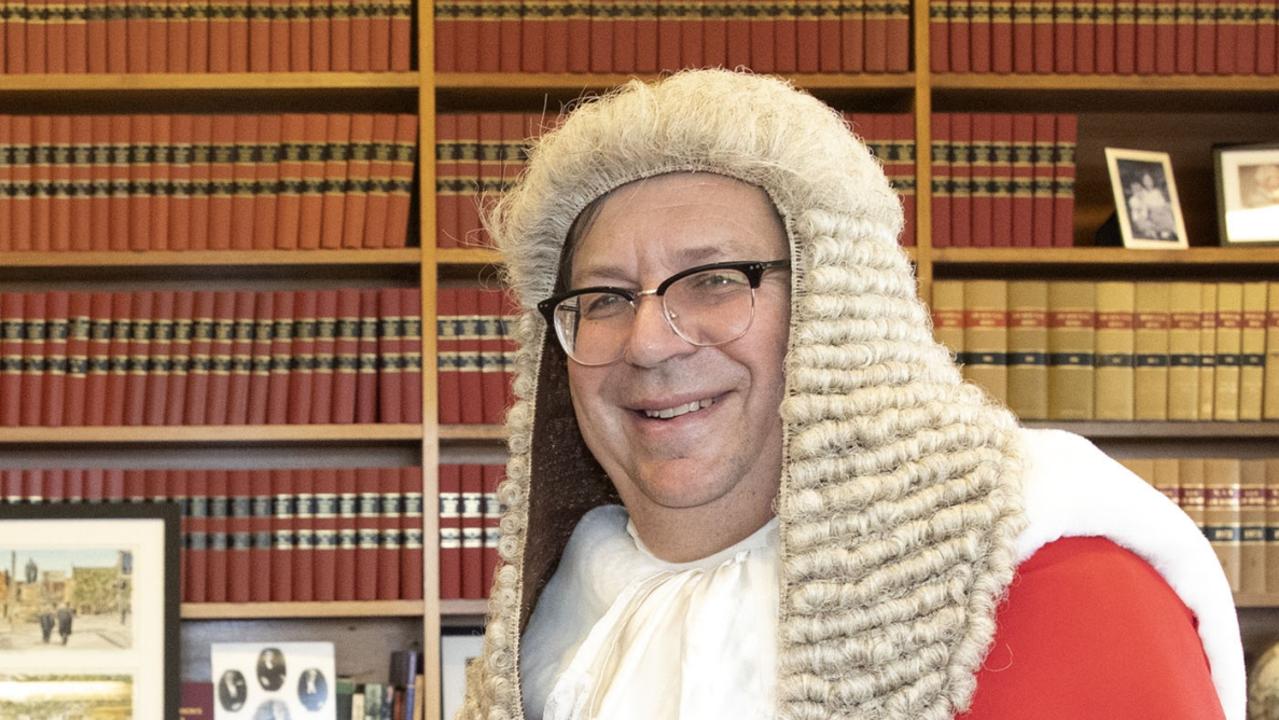New arts policy is welcome, but tough questions remain

Employment Minister Tony Burke has had a busy week. He’s supported an overhaul of Workforces Australia. He’s proceeding to scrap the Australian Building and Construction Commission. He’s been facilitating a private member’s bill concerning voluntary assisted dying, and fielding questions about the cashless debit card.
But perhaps no emanation of his was as scrutinised as the announcement of the 15 members of a consultative panel to “help deliver the Australian government’s National Cultural Policy”.
Burke, you see, is also Arts Minister, and doing more than his predecessor, Paul Fletcher, simply by getting out of bed in the morning. This is ground the opposition has ceded entirely, Peter Dutton having elected to do without an arts spokesperson.
So a great deal is expected of the policy he has promised to present before the end of the year. Everyone loves a panel, especially one including Jaguar Jonze.
The composition of this group of worthies may offer some clues where we’re headed, the “creative industry professionals” ranging from theatre director Wesley Enoch to movie producer Emile Sherman being broken into five sub-panels – First Nations, diversity, artist as worker, strong institutions and audiences.
If this sounds familiar, that’s because it is: it is a match for the “five overarching goals” of Creative Australia, launched by the Gillard government in March 2013.
If there’s room for reservation, it lies in the look of foreordination. After all, nobody is about to argue for less diversity, weaker institutions or smaller audiences. You can already count on numerous pieties about arts and culture being a major employer and wealth generator, as though it must justify itself like the superphosphate industry.
And, while the panel has a diversity of backgrounds, less immediately clear is the possibility for a genuine diversity of views. Some tough questions about the allocation of resources to arts and culture in Australia, quite independent of the quantum, are arguably overdue asking.
For instance, does Australia get value for its byzantine grants regime? Are our funding bodies fit for purpose? What duplication is involved in their multiplicity, state as well as federal? What proportion of scarce arts funding leaks away in its distribution?
Out of anxiety about biting the hand that feeds, the arts bureaucracy in this country is seldom challenged – and now, of course, it will be involved in framing the terms of this new panel’s discussions.
In fact, if you want to a make a submission as an individual, part of an organisation, peak body or arts business, you are restricted to filling out the boxes in a three-page template. Keep it short, folks. We’re busy people here.
What’s different about Burke’s approach? It’s interesting to compare his panel to a prominent ancestor: the cultural policy advisory panel convened by Paul Keating for Creative Nation, the original Australian cultural policy, launched in 1994. This featured, among others, two novelists (Thea Astley, Rodney Hall), an academic historian (Peter Spearritt), a critic (Leo Schofield) and even a satirist (Bruce Petty).

This time round, written culture appears to be regarded as marginal. There is no writer of note; there is no historian, or publisher, or editor, or authoritative critic. There is thus no real scope for consideration of, say, the state of the canon or of relative standards, in tune with a time when everyone was won and all must have prizes.
Also noticeable is the lack of engagement with national heritage in the form of our major collecting institutions, whose parlous state The Australian explored six weeks ago.
The collecting institutions, to be fair, were unrepresented on Keating’s panel too. But in 1994, they were only seven years into absorbing the austerities of the public service “efficiency dividend” imposed on them by the Hawke government and mindlessly adhered to since despite the huge expansions of their mission.
The National Library, Gallery, Museum and Archives are now buckling after a generation’s neglect, worsened by the Morrison government’s long march through the institutions, which involved filling their councils with cronies.
Burke has signified an awareness of the national estate, in an interview last month noting that while institutions had collections that “remain magnificent”, they were burdened by “infrastructure around them that’s seriously run down”.
But he has said nothing about the “efficiency dividend”, which has gone from absurd to outright destructive. And his “strong institutions” panel will be composed of the CEOs of Arts Centre Melbourne, the Sydney Fringe Festival and the National Aboriginal Islander Skills Development Association Dance College.
Will this be enough to promote the financial and governance reform our big collecting institutions desperately need? They have until August 22 to present submissions. But it already feels like they have been excluded from the formulation of a policy they will be expected to nurture.
Perhaps Burke’s biggest challenge is creating something lasting. The pattern of the past 30 years in arts and culture is for Labor to initiate and the Coalition to dismantle.
The irony is that it was on the watch of conservative governments that most of our major cultural institutions, including the Australia Council, were launched. Yet Creative Nation succumbed to the inanition of the Howard years, and Creative Australia lasted as long as the first budget of the Abbott prime ministership. For policy was substituted piecemeal reviews, captain’s picks and eventually nothing at all.
After a largely barren decade, then, almost anything will look like progress, and in the new it might be hoped to find something of old hopes.
Among the initiatives of Creative Nation, subsequently affirmed by the “creative stream” at Kevin Rudd’s 2020 Summit, was support for a full-fledged Ministry of Culture with cabinet-level representation.
If Tony Burke genuinely aspires to promoting arts and culture, a useful step might be ending the pretence that his is a job to be done in addition to employment and industrial relations.
If you want genuinely big thinking, it’s helpful to set an example.


